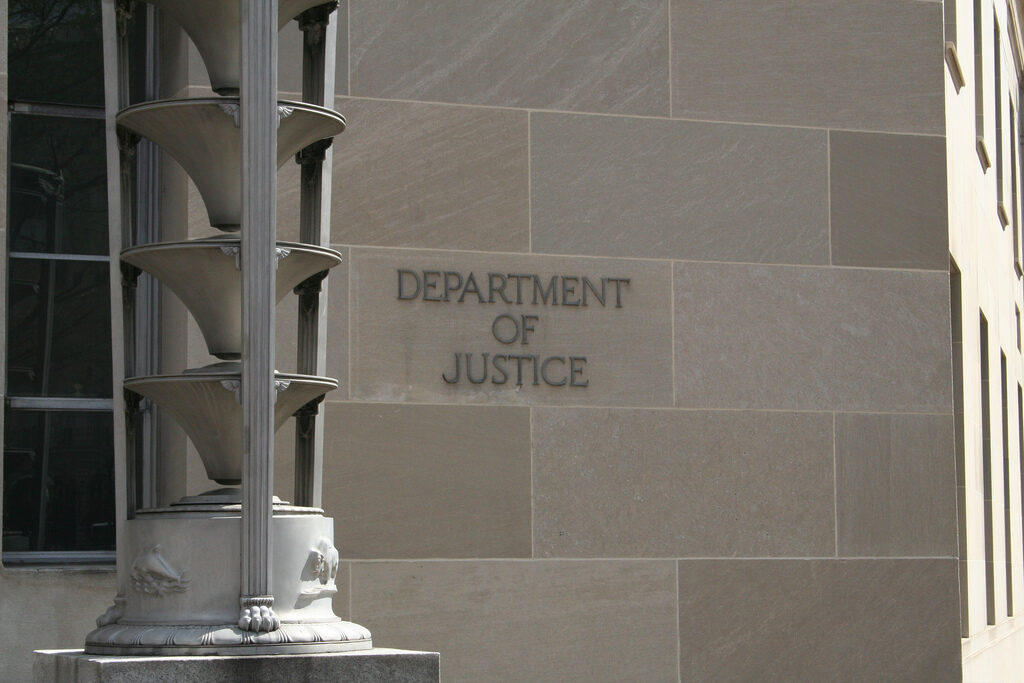California’s prisons are so overcrowded that the Supreme Court just ruled, in another 5-4 decision, that the whole enterprise basically amounts to cruel and unusual punishment. I suppose you can guess which Justices voted in dissent, but I’ll list them anyway: Scalia, Thomas, Alito, and Roberts.
The U.S. Supreme Court ruled that California must remove tens of thousands of inmates from its prison rolls in the next two years, and state officials vowed to comply, saying they hoped to do so without setting any criminals free.
Administration officials expressed confidence that their plan to shift low-level offenders to county jails and other facilities, already approved by lawmakers, would ease the persistent crowding that the high court said Monday had caused “needless suffering and death” and amounted to cruel and unusual punishment.
I have to say, that first paragraph has a sloppy construction that made me burst out laughing. The second paragraph clarifies that the plan is to shift inmates from state to county prisons, and to use “other facilities” which will include drug-treatment centers and other supervised care. The problem is that California has a stupid law that makes it impossible to raise taxes without a two-thirds majority, and the Republicans don’t want to break their pledges to never raise taxes under any circumstances. The result is that there is no money to move these prisoners.
…the governor’s plan would cost hundreds of millions of dollars, to be paid for with tax hikes that could prove politically impossible to implement. And at present, Brown’s plan is the only one on the table…
…Republican lawmakers said they would continue to fight the governor’s plan and its reliance on tax increases. Democrats “are looking for any excuse they can to try to have more taxes,” said the leader of the state Senate’s GOP minority, Bob Dutton of Rancho Cucamonga.
Dutton said state officials should instead fast-track construction of new prisons and pressure the federal government to take custody of thousands of illegal immigrant felons housed in the state system.
Meanwhile, things are getting chippy on the Court:
Justice Scalia summarized his dissent, which was pungent and combative, from the bench. Oral dissents are rare; this was the second of the term. Justice Kennedy looked straight ahead as his colleague spoke, his face frozen in a grim expression.
You can read the opinion and dissents here (.pdf). I read most of Scalia’s dissent last night and I actually found myself feeling sympathetic to his arguments. In particular, I found myself nodding in agreement when he discussed the disconnect between the plaintiffs and the people being granted relief. The Court ordered the reduction of the prison population to help address the problem of inadequate medical care, including especially mental health care. But the Court doesn’t care who is released or transferred just so long as the population declines. The idea is that the only way to help the people in need is indirectly through a structural injunction.
Structural injunctions depart from that historical practice, turning judges into long-term administrators of
complex social institutions such as schools, prisons, and
police departments. Indeed, they require judges to play a
role essentially indistinguishable from the role ordinarily
played by executive officials. Today’s decision not only
affirms the structural injunction but vastly expands its
use, by holding that an entire system is unconstitutional
because it may produce constitutional violations.
While I agree with Scalia that this decision by the Court is extreme, the conditions in the California state prison system are so egregiously bad that five members of the Court felt that something must be done. In a saner world, Kennedy and the liberals on the Court would have ruled that Article 13A of the Constitution of the State of California is unconstitutional because it prevents the state from raising the revenue it needs to run a prison system that doesn’t create a cruel and unusual system of punishment. They could have voided that provision and compelled California’s legislature to raise taxes or sell bonds sufficient to house their prison population humanely. But, I suppose such an act would pose its own problems.
And, of course, we always need to consider why we have so many people in prison in the first place and why our system does a poor job of reforming criminals and good job of hardening them.
